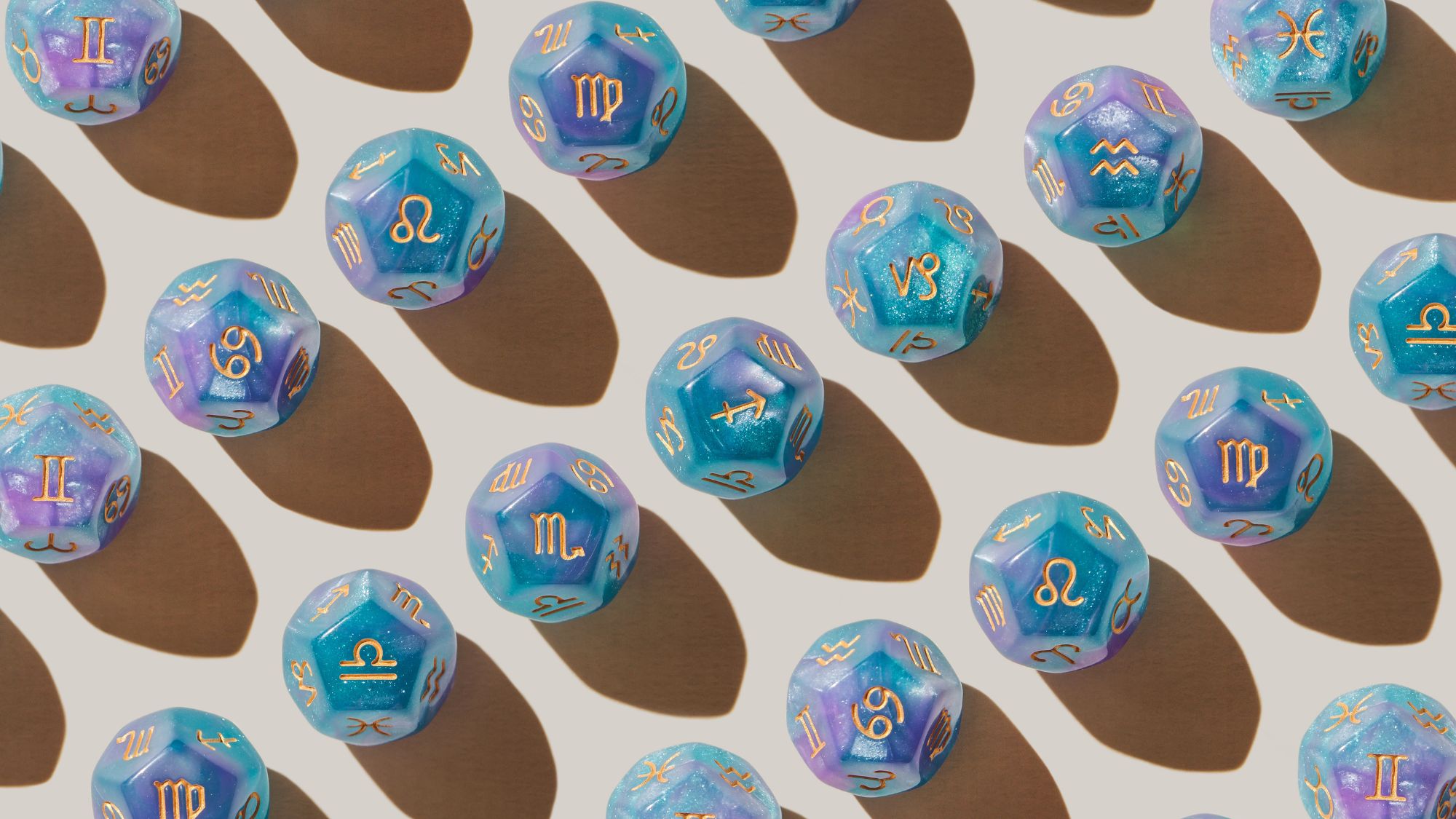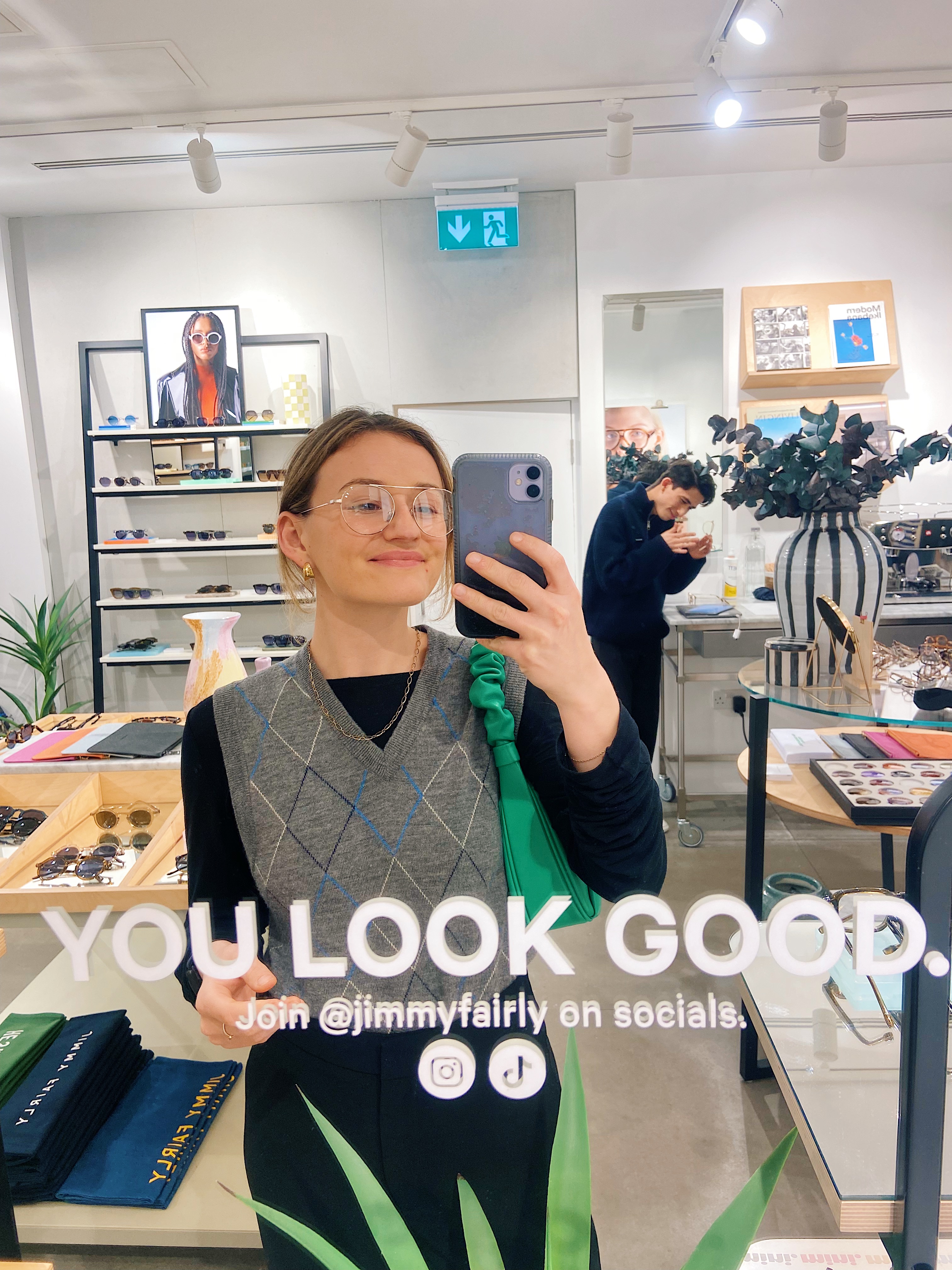
Celebrity news, beauty, fashion advice, and fascinating features, delivered straight to your inbox!
You are now subscribed
Your newsletter sign-up was successful
If you've been on a search engine or social in the last week, you'll have likely seen videos about "Lucky Girl" trend popping up left, right and centre.
While not a new concept, it's taken Tiktok by storm during the first few weeks of this year, and really started gaining traction just before New Year when two college students shared a video explaining how they've used the technique to change their own lives.
The premise isn't new but the way it's been packaged up is: a form of manifestation, Lucky Girl syndrome dictates that you attract good luck simply by stating that you will. By approaching each day with a positive mental attitude and repeating the mantra "I'm so lucky everything goes my way," the creators of the trend believe that you can, in fact, attract good luck.
Similar to the Law of Attraction, which is a theory that states that whatever you focus on will come to fruition, thousands of people have taken to Tiktok to share personal stories of how the trend has affected them - everything from winning lottery tickets to being let off early from work.
But, question: is it really possible to attract luck? Or is it just another fad Tiktok trend that we'll have forgotten about by next month? Well... we're about to find out. Here, manifestation expert and author of Sunday Times bestseller Manifest, Roxie Nafousi, and evolutionary astrologer and founder of The Manifesting App, Dalila Salgueiro, share their thoughts. Plus, as a Health Editor, I give it a go IRL. Keep reading.
So, is the Lucky Girl trend a real thing or a dangerous fad?
First things first - a bit of background. The concept of manifestation stems from early 20th-century New Thought ideology where, at its most extreme, it's believed that positivity is a gravitational force that we as humans have the ability to harness.
According to Salgueiro, Lucky Girl syndrome is an iteration of manifesting that encourages you to believe in yourself, your inner power, and your strength - "not to mention the flame that makes you unique and allows you to wake up every day with a purpose," she shares.
Celebrity news, beauty, fashion advice, and fascinating features, delivered straight to your inbox!
So, how does it work? Well, by bringing your thoughts and emotions into alignment. "For example, if you want to manifest your dream job, you have to believe that you are so lucky, you will eventually find your dream employment situation," she explains. "You align yourself with the thing you want – and this draws that thing towards you."
She goes on to state her view that by thinking in this way, there are no limits to what you can accomplish.
How so? Well, she believes that your thoughts and your energy can create your reality. "If you are constantly being negative and down then you will attract and manifest negative energy," she continues.
She reckons that practicing positive affirmations every day is key to attracting positive energy, as well as reframing negative thoughts. "It's important to work on the idea that what you want is already your reality," she explains. "Affirmations like "I am living my dream every day" and "I am the luckiest person alive" encourage your mind to inhabit the reality you've been trying to create."
Nafousi isn't so convinced, however. While she says she can definitely understand why repeating affirmations such as the Lucky Girl one could have a positive effect on your life, she points out that it isn't actually manifesting - instead, just a small part of a wider whole. "While repeating affirmations can be a powerful tool, it's just that," she stresses. "A tool to support the overall practice."
She believes manifesting to be a self-development practice that's rooted in self-love and requires you to work on your "inner healing journey, subconscious beliefs, and ability to work through challenges and comfort zones."
"I don’t believe it's about luck or crossing your fingers and hoping - I think the association can be misleading," she continues. Adding that the trend could mislead people into thinking that they just "need to be luckier" in order to attract positive energy, she encourages against sitting back and waiting for things to come to you and instead, actively taking action to make things happen. These steps can include goal setting, forward planning, visualising, and so on.
I tried the Lucky Girl trend - here's why it's problematic
Picture the scene: I've just left work after a busy nine-hour shift, a heavy tote bag with laptop, Tuppawear and planner tucked under my arm. I get to the bus stop and, voila - the bus is a mere minute away (some days, I have to wait upwards of fifteen minutes for the direct bus home).
With a slight smile, I repeat to myself under my breath: "I'm so lucky everything goes my way."
I've been influenced by the new Tiktok Lucky Girl trend and yes, in the name of health journalism, I'm giving it a go.
While I'm not new to manifesting - I wrote about how to manifest here, with expert help from the likes of mindset experts and authors of 16 Seconds – Debunking The Myths Surrounding Manifestation, Pam Lidford and Sandra Stocks - I am, shall we say, sceptical. While I'm all for the power of positive thinking and small habits shaping your day-to-day, I err more on the side of practicality. I believe that you make your own luck - that is, if you make small changes every day to live and think more positively, then of course you're more likely to reach your goals and view the world in a better light.
What I'm not quite so convinced about, however, is the idea that repeating the above mantra would magically make these things happen.

Ally Head had a spate of good fortune the week she tried out the Lucky Girl trend - but remains sceptical
Day one and I tell team Marie Claire that I'm testing out the trending theory. One positive I immediately noticed about the Lucky Girl mantra is its ability to ease stressful or tense situations. Joking sarcastically when a problem arises at work, I joke sarcastically about just! how! lucky! I am, in turn sharing a laugh with the team and soothing my own stress levels.
Day two is a tough day - too many things to do and not enough time. That said, actively choosing to work on reframing my negative thoughts does at least remind me that bad days come and go.
Day three and I'm almost convinced it works - not in the sense of actually attracting luck, but in making you notice "lucky" (read: positive) situations that you otherwise may not have. I get given a free Pret coffee on my way to the office, someone at the gym pays me a compliment (and not in a creepy way), and I hear good personal news.
That said, come the end of the week, while I've enjoyed the reminder to stay positive and utilise the power of positive thinking, I do have a few concerns about the trend.
I'm wary about this persistent narrative that you alone have the power to shape your entire reality. While positive thinking is certainly powerful, I don't think it can be seen as a cure-all. Where do we draw the line? What about if you get a life-threatening illness? (Some manifestation coaches even go as far as to claim their techniques are effective against conditions like cancer).
I think it's also important to acknowledge privilege - especially when it comes to trends like this. It poses lots of problems: if luck doesn't come your way, did you bring it on yourself? Salgueiro seems to imply so above, stating that "if you're constantly being negative and down, you'll attract negative energy." But what about the eternally positive people who get unlucky in life regardless of their temperament? Does this mean they're to blame for their own ill fortune?
Plus, it goes without saying that while it's probably easy enough to manifest a new car when you have a well-paid job and financial security, it might not be as easy to manifest your way out of poverty or living without drinking water.
Through my research last year when I was writing our guide to how to manifest, I learnt that the technique has little to no scientific backing and that, interestingly, research has shown that people turn to more holistic "fix-alls" in times of turmoil - like, say, the Covid pandemic, cost of living crisis, or war in Ukraine.
Sure, I'm a fan of habit stacking and goal setting (yes, I'm currently reading Atomic Habits and yes, I'm a big advocate for laying out practical steps to ensure reaching important life goals). That said, I believe both of those things are tangible and measurable ways to create your own luck, as it were, rather than waiting for it to happen.
Let's be honest - even with all the positive affirmations in the world, bad things still happen to good people, and positive thinking can only go so far. Take the original creator of Lucky Girl syndrome, for example, which The Guardian has pointed out was actually first posted about back in August by creators of colour - unlike the white college girls who eventually went viral with the theory.
What do you reckon?

Ally is Marie Claire UK's Senior Health and Sustainability Editor, a well-regarded wellness expert, ten-time marathoner, and Boston Qualifying runner.
Utilising her impressive skillset and exceptional quality of writing, she pens investigative, review and first-person pieces that consistently demonstrate flair and originality.
As well as writing, Ally manages a team of freelancers, oversees all commissioning and strategy for her pillars, and spearheads the brand's annual Women in Sport covers, interviewing and shooting the likes of Mary Earps, Millie Bright, and Ilona Maher. Shortlisted for three BSMEs and winning one in 2022, Ally lives and breathes her verticals: her eye for a story and connections within the wellness sphere are unrivalled. Follow Ally on Instagram for more.
